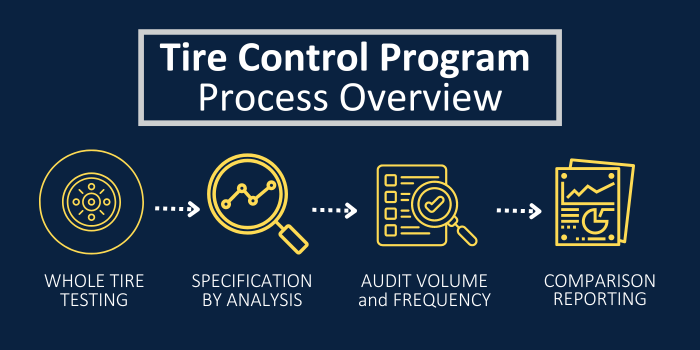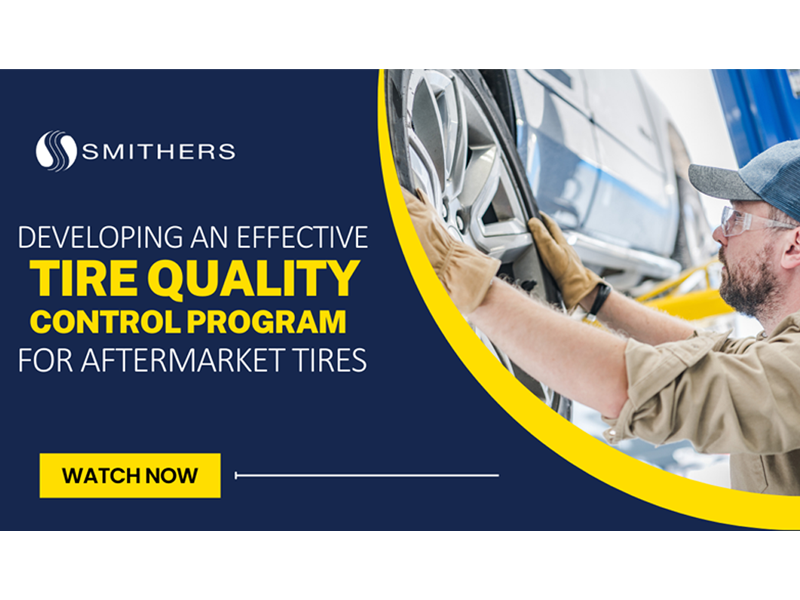Challenges to Tire Quality
Ensuring high-quality tire manufacturing is a constant challenge due to various factors. Although specifications may seem fixed they are actually dynamic, as raw material suppliers may change and cost reductions are constantly being implemented.
Additionally, the use of multiple generations of building equipment to construct tires adds another layer of complexity. This poses a challenge in maintaining consistent quality standards and requires continuous monitoring and adjustment. Any changes in raw materials or manufacturing processes can impact the overall quality of the tires, making it crucial for tire manufacturers to stay vigilant and adaptable. Meeting these challenges is essential in delivering high-performing, reliable tires to consumers.
Field experience is crucial for understanding the true performance of tires. While these products may meet government minimum requirements, it is important to assess how they will perform in real-world conditions. This includes evaluating their actual life performance compared to competitors and how well they resist aging in service. Through hands-on experience and observation, we can gain valuable insight into the true capabilities of these tires. This field experience allows organizations to go beyond meeting minimum requirements and strive for a greater understanding of performance trends in the products they sell.
Smithers experts can develop customized tire benchmarking and quality auditing programs to suit your company’s specific needs.

Where to start with tire analysis?
Whole tire testing
Whole tire testing is a crucial step in understanding the quality and performance of tires before they are released to the market. This testing process involves subjecting tires to a series of rigorous examinations and evaluations, including physical and performance tests. These tests can assess critical aspects such as durability, tread wear, handling, braking, and traction. The results of whole tire testing provide manufacturers with valuable insights into the overall performance and potential issues of their products.
Whole Tire Testing Standards to consider:
| FMVSS-119 / 139 |
Plunger energy |
| Rolling resistance |
High-speed performance |
| Accelerated aging |
Whole tire measurements |
| Force & moment |
Tire uniformity / balance |
| Indoor / outdoor treadwear |
Wet / dry traction testing |
| Laser tread profilometry |
Snow & ice traction |
| Characterization for modeling |
|
Specification by analysis
Why create a tire “specification by analysis”
The creation of a document that captures the characteristics of a tire at a point in time is an essential task for any organization involved in the tire industry. This document serves multiple purposes, including providing a benchmark for comparing a specific tire against others in the market, creating a record of the tire's measurements at a specific point in time, and establishing a platform for future auditing of tire constructions and compositions. By carefully documenting the tire's characteristics, companies can make informed and strategic decisions when it comes to purchasing tires. Additionally, this document serves as a risk mitigation tool, allowing organizations to acquire a thorough understanding of the product and ensure its quality and performance.
Primary elements of a “specification by analysis”
- Examination of component dimensions to accurately document tire constructions
- Characterization of tire reinforcements, such as belts, plies, and overlays, is essential in identifying the reinforcing constructions and calculating the overall casing strength
- Conducting key rubber composition analyses enables the determination of fundamental compound aspects of the tread and other major tire components
- Physical properties of key rubber components and the adhesions between different components for optimal tire performance.
Developing an Audit Schedule
Regular audits and inspections play a vital role in developing an effective quality program for purchased tires. These activities serve as proactive measures to ensure compliance with quality standards and identify any potential deviations or non-conformities that can be discussed with the supplier. Smithers experts can work with tire buyers to evaluate sample size and frequency of audits to develop a comprehensive plan. Audits should cover a number of criteria that can also be customized per the client’s need:
- Whole tire performance
- Product design
- Reinforcements
- Tread and sidewall component compositions
- Rubber component compositions
Conducting cumulative tire audits creates a historical database, which can aid in tracking any recurring issues and identifying areas for improvement. Contact a Smithers tire expert today to develop a program that is right for your company’s tire buying strategies.




